Master of Science in Software Engineering
Cleveland State University's Master of Science in Software Engineering (MSSE) program is the first of its kind in Ohio. The program is the successor to the Graduate Certificate Program in Software Engineering and is intended for both practicing professionals, as well as full-time students in the areas of software engineering, computer engineering, electrical engineering, computer science, or information management.
The program introduces students to current and best practices in the engineering of software systems. A distinguishing feature is its emphasis on the architecture, design, quality, management, and economics aspects of software engineering. Students take a project from start to completion, learning the requirements of specific deliverables and the development life cycle. Critical management issues, such as risk assessment, project planning, and market analysis, are also covered. The program exposes students to new technological developments in an advancing field and how to apply their knowledge in the workplace.
The Electrical Engineering and Computer Science Department recently commissioned a new state-of-the-art Software Engineering instructional laboratory, fully equipped with hardware and software required to meet the needs of all courses in the curriculum. The department also maintains the Software Engineering Research Laboratory to support research. The lab is equipped with desktop computers and servers connected via a LAN. Students have the opportunity to work on cutting-edge research in Software Engineering.
![]()
Department of Electrical Engineering & Computer Science
Phone: 216.687.2589
eecs@csuohio.edu
Program Requirements
Students are expected to demonstrate proficiency in the following prerequisite knowledge areas. Students must complete prerequisite courses in the areas they lack profiency, in addition to the requirements for the MSSE degree. These prerequisite courses do not count toward the requirements for the MSSE program. Those who took one or more equivalent courses can have the corresponding requirements waived but must get a prior authorization by the academic/research advisor.
- CIS 500 Introduction to Programming
- CIS 506 Data Structures & Algorithms
- CIS 568 Object-Oriented Programming
- CIS 530 Databases
- MTH/CIS 505 Discrete Mathematics
- MTH 323 Probability & Statistics
- EEC 483/CIS 535 Computer Organization
- EEC 584/CIS 554 Computer Networks
- CIS 545 Operating Systems
- EEC 521 Software Engineering
- EEC 623 Software Quality Assurance
- CIS 634 Object-Oriented Software Engineering
- CIS 635 Software Engineering Metrics, Economics, & Management
Students are required to take between 28-32 credits (depending on their track)
- CIS 620 Advanced Operating Systems
- CIS 650 Compiler Design
- CIS 666 Artificial Intelligence
- CIS 675 Information Security
- EEC 517 Embedded Systems
- EEC 522 Software Systems Modeling and Analysis
- EEC 525 Data Mining
- EEC 530 Digital Signal Processing
- EEC 581 Computer Architecture
- EEC 584 Computer Networks
- EEC 622 Formal Methods in Software Engineering
- EEC 624 Software Testing
- EEC 625 Software Design & Architecture
- EEC 626 Software Engineering Project
- EEC 681 Distributed Computing Systems
- EEC 683 Computer Networks II
- EEC 684 Parallel Processing Systems
- EEC 687 Mobile Computing
- EEC 688 Secure and Dependable Computing
- EEC 699 Master's Thesis
Did You Know?
Employment of software developers is projected to grow 24 percent from 2016 to 2026, much faster than the average for all occupations.
Bureau of Labor Statistics
Career Outcomes
- Graduates meet the demands of industry and address the needs of information technology professionals, in general, and software engineers, in particular.
- These are some of the local companies that are hiring CSU grads: MRI Software, AXS, CyberCoders, OverDrive, Medical Mutual, Amtrust, Aerotek, and StreamLink Software.


